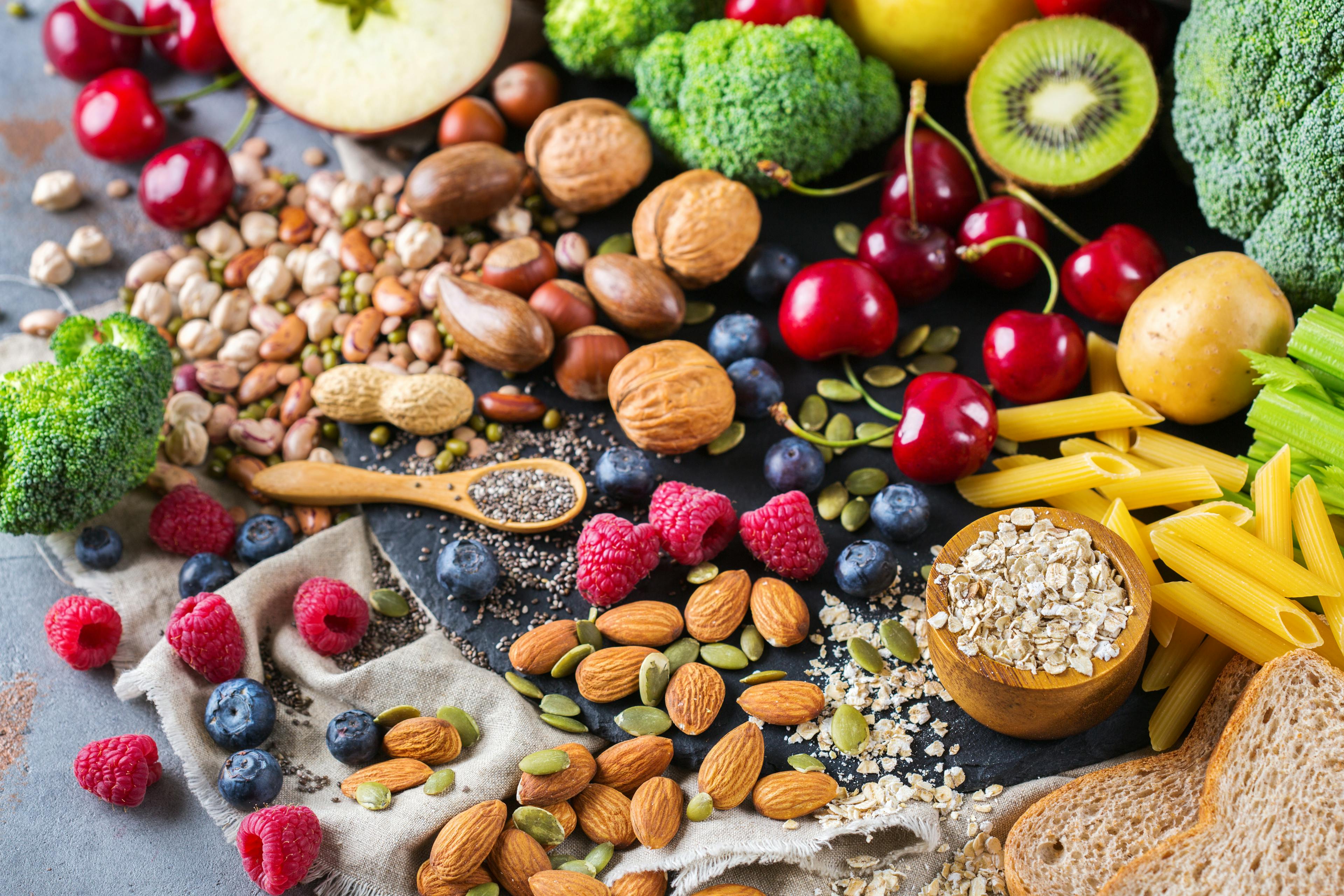Understanding Why Certain Nutrients Are More Important During Perimenopause
As your body transitions through perimenopause and menopause, nutrition becomes more vital than ever. The hormonal shifts that define this period can affect bone density, heart health, metabolism and mood. The good news is that the foundational nutritional support needed for both perimenopause and menopause is the same.
By focusing on a diet rich in essential nutrients, you can proactively manage symptoms and promote long-term well-being.
This includes focusing on:
- Calcium, magnesium, and vitamin D for bone health
- Omega-3s for their anti-inflammatory properties which can assist with mood, joint pain, and there are studies showing that Omega-3's can help with symptoms such as hot flushes.
- Healthy fats, which are important due to the increased risk of cardiovascular disease
- Lean protein to support metabolism and preserve lean muscle mass
Managing perimenopause and menopause requires thoughtful nutrition to support your body's changing needs.

Your Nutritional Toolkit: A Guide to Easing Symptoms
1. Magnesium, The Mighty Mineral for Strong Bones
Low magnesium has been shown to lead to lower bone mineral density and higher risk of fractures in perimenopause. Many menopausal women are unknowingly deficient in magnesium which increases their risk of osteoporosis.
Around 60% of your body's magnesium is stored in your bones. If you are deficient, your bone turnover and loss is likely to increase and you are unable to absorb vitamin D as efficiently. Ensure you're getting enough magnesium through sources like nuts, seeds, legumes, dark leafy greens and whole grains.
2. Stabilise Your Blood Sugar, Stabilise Your Mood
Hormonal fluctuations can make your moods feel unpredictable. When your blood sugar levels spike and crash, it can amplify feelings of irritability, anxiety, and fatigue. To help keep your mood steady, focus on balanced meals and snacks that combine protein, healthy fats, and fibre.
3. Combat Hot Flashes with Phytoestrogens
Phytoestrogens are natural plant compounds that have a chemical structure similar to estrogen. When you consume foods rich in them, such as chickpeas or flaxseeds, these compounds can mimic a weaker form of estrogen in your body.
Some evidence has shown that women find that foods rich in phytoestrogens, or plant-based compounds can help with hot flashes and night sweats. Incorporating foods like soybeans, chickpeas, lentils, flaxseeds, and certain fruits and vegetables can be a gentle way to support your body's hormonal balance.
4. Support Bone Health with Calcium and Vitamin D
As estrogen levels decline, so does bone density. This increases your risk for osteoporosis later in life. Now is the time to be proactive. Ensure you're getting enough calcium through sources like dairy, fortified plant-based milk, leafy greens, and sardines. Vitamin D is just as important, as it helps your body absorb calcium. Get it from sunlight exposure, fortified foods, and fatty fish like salmon.
5. Reduce Risk of Cardiovascular Disease with Omega 3s
Perimenopause is associated with an increased risk of cardiovascular health risks including high blood pressure, insulin resistance and high cholesterol levels due to the reduced estrogen levels. Omega 3's have also been shown to reduce frequency and severity of night sweats in perimenopausal women. The anti-inflammatory properties of Omega 3s also may help with mood swings and joint pain associated with menopause. Foods high in Omega-3 fatty acids can help combat this. Aim to include fatty fish (salmon, mackerel, sardines), walnuts, and chia seeds in your diet.
6. Prioritise Protein for Muscle and Metabolism
You may notice that maintaining muscle mass becomes more challenging during this time. Protein is crucial for muscle repair and growth. It also helps you feel full, which can be helpful if you're managing your weight. Include lean protein sources like chicken, fish, eggs, legumes, and tofu in every meal.
7. Stay Hydrated
Dehydration can worsen fatigue and make you feel sluggish. Drinking plenty of water is essential, but you can also increase your hydration by eating water-rich foods like cucumbers, watermelon, celery, and berries. This simple habit can help you feel more energised throughout the day.

Know You Are Not Alone During This Transition
Perimenopause is a unique journey for every woman, and it's essential to remember that you don’t have to navigate it alone. Our goal at Moshy is to empower you to feel confident and supported at every stage of life.
Sometimes, extra guidance is essential to simplify complex health challenges, and that's precisely why our weight management program is designed to help you make informed choices and achieve your goals.
Experience a streamlined consultation process with Moshy—complete a brief questionnaire and quickly connect with your health practitioner, all without the stress of in-person clinic visits.
If you're ready to take the next step in your health journey, our team is here to help.
Note: If you are experiencing severe or persistent symptoms, we always recommend consulting with your Doctor for personalised medical advice.

